Published
- 08:00 am

I love my smartphone. The variety of tasks that I can complete today using it has taken away the need to use dedicated devices that are now gathering dust in my home. Instead, I stream music and videos, navigate road trips and take amazing, high quality pictures of my adventures (I can share some if you’d like) – all with my phone. But most of all, I love the flexibility to pay with that same device anywhere I’d like while still feeling secure that my credentials are being safeguarded by my bank.
At Mastercard, we’re committed to delivering choice, allowing consumers to pay with whatever form factor – plastic card, smartphone, wearables, cars, etc. – they deem most convenient, while maintaining the highest level of security. And as consumers increasingly lead connected lives, we’re providing the relevant tools to our issuing and internet of things (IOT) partners to deliver secured payments to consumers.
However, building a payment solution is not an easy task for financial institutions or fintechs. Identifying and partnering with theright vendor that can help bring a digital payment service to market is a critical component in achieving this vision.
The Mastercard Digital Vendor Program is a community of vendors that helps Mastercard customers digitize their card portfolios and deploy Masterpass-enabled digital wallets. The Program allows for open communication with key Mastercard representatives to aid in the integration of solutions, regular training and webinars and access to key documentation. The community directory also provides vendor contact info and state of implementation readiness of key digital capabilities for Mastercard issuers to expedite the vendor selection process.
To date, we have 59 vendors globally as part of this program with the objective of providing a superior consumer digital experience and the highest level in payment security. There are three Platinum program level vendors: Payair Technologies, Sparkling18 and uPaid; and, 12 digital vendors at the Gold program level – including recently announced Sequent. These companies are ready to work with issuers and IoT partners, while many more are working on their integration with Mastercard.
From North America and Europe, to Asia Pacific, the Middle East and Africa, and Latin America and the Caribbean, these Digital Vendors offer their solutions in multiple regions around the globe. Of the 59 participants, there is approximately 20 vendors able to offer both solutions and local support in each of these regions.
The Mastercard Digital Vendor Program will not only assist companies with the identification and selection of the right vendor, but will help the payments industry collectively achieve speed and greater reach for digital payments – providing stronger security across channels and devices for the benefit of the consumer.
Related News
- 01:00 am
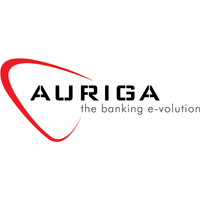
On the 50th anniversary of the ATM on 27 June, Auriga, a leading supplier of banking technology for 25 years, is urging banks to seize the opportunities presented by the ATM as part of a shifting financial landscape and look at the opportunities the next 50 years bring.
“Brits still love their ATMs – they’re a key part of the banking process and are incredibly valuable. 43% of UK respondents to the survey using an ATM on a weekly basis so banks who don’t embrace the technology are missing out on a chance to communicate with their customers and build trust,” explains Mark Aldred, who leads Auriga’s International business.
But banks are running the risk of missing out on new revenue streams and opportunities. “1 in 10 UK consumers thinks the UK doesn’t have enough ATMs that can do more than just dispense cash,” explains Mark, “they’re much more than just cash machines now. They can process bill payments, exchange currency and even sell event tickets. The demand is there from UK customers, but banks now need to meet it.”
With bank branches around the country closing, ATMs can be the middle-ground approach between the ex branch and empty buildings with no contact at all. “A combination of self-service machines and staff could be the ticket to reviving the dwindling number of bank branches”, explains Mark, “this hybrid approach appeals most to customers, if banks can strike a balance between customer autonomy and personalised support and advice. Customers want more personalisation and ATMs are a great channel to deliver this - for example pre-set fast withdrawals for the customer who always takes out £70 for weekend expenses or allowing customers to set up their dashboard to meet accessibility needs. It all adds up to a better relationship and more trust with your customers, which can only be a good thing.”
The challenge for banks is to achieve these steps despite the constraints of sometimes outmoded legacy technologies.. There are countless examples outside of UK where the right software could rejuvenate existing ATMs. That’s one of the reasons we started in this industry - we began in the Age of the Internet and challenging the internet banking market to be better than ever before and it was logical for us that the ATM could benefit from the same cloud based approach – it reduces the total cost of ownership, improves time to market and eases the development of new services.”
“What is needed is a mind-set change from the current position of offering very limited services and reducing operating cost as the single most important focus, to a more optimistic outlook of expanding revenue-generating consumer services with operating costs being only one management metric. The ATM is on the brink of some very exciting developments – with technology like artificial intelligence, data analytics and chatbots poised to bring an even better experience to the ATM – but without the right infrastructure in place banks could risk missing out” concludes Mark.
Related News
- 06:00 am
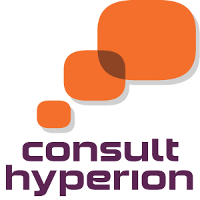
With the deadline today for full implementation of the Fourth European Anti-Money Laundering Directive (AMLD4), a new report from Consult Hyperion, commissioned by Mitek, reveals that the average UK bank is currently wasting £5 million each year due to manual and inefficient Know Your Customer (KYC) processes, and this annual waste is expected to rise to £10 million in three years. AMLD4 and the anticipated Fifth European AML Directive (AMLD5) increase the required frequency and scope of these essential KYC checks performed by banks and other financial institutions, resulting in a further inflation of operational costs.
The report, titled AMLD4/AMLD5 KYCC: Know Your Compliance Costs, examines the existing cost of manual and inefficient KYC checks for banks, the impact of new AMLD4 and AMLD5 directives, and the potential of electronic identity (eID) verification. AMLD5 suggests using government-backed eID schemes, such as GOV.UK Verify, to improve KYC processes. However, the report concludes that most eID schemes will not be ready for some time and recommends advanced mobile technology to bridge the gap.
Key Findings
· Inefficient KYC processes cost the average bank £47 million a year
· Total costs for KYC processes range from £10 to £100 per check
· In the UK, 25% of applications are abandoned due to KYC friction
· AMLD4 will impose fines as high as 10% of annual turnover for serious breaches
· eIDs for digital onboarding are several years from being widely available to the banking sector
· Mobile technology could save £5 million in KYC costs, rising to £10 million in three years
“The message to all financial institutions is clear: The cost of KYC checks is much too high, placing too much reliance on inefficient and error-prone manual processes,” said Steve Pannifer, author of the report and COO at Consult Hyperion. “Getting it wrong is both costly and damaging. New rules will result in much higher fines when serious failures in compliance occur. Financial institutions cannot afford to wait for eID to be widely available. Advanced mobile technology provides a straightforward mechanism now to reduce both cost and risk as well as remove friction from the user experience, increasing top line revenue.”
KYC processes, where an institution verifies the identity and financial conditions of customers before doing business, is a critical business practice and regulatory requirement. The high cost of KYC compliance currently is the result of a reliance on manual checks, as well as other inefficiencies, which create costs including document archival, time spent by staff performing checks, specialist training, and the need to recruit compliance officers to ensure processes are being implemented correctly.
The Consult Hyperion report concludes that AMLD4 and AMLD5, due to take effect in twelve months, will increase these costs substantially as the frequency of KYC checks increase and more transaction types fall within its scope. These checks also have a major effect on conversion rates, particularly on those applicants with a limited credit history.
The directives addressed in the report point to government-backed eIDAS, the regulation that aims to create digital identities that will have the same legal status as traditional, paper-based credentials, to reduce costs. The lack of a timetable for eID access means that banks need to adopt mobile identity verification technology, backed by machine learning to automate and improve fraud detection, as soon as possible. This technology will dramatically reduce costs and the risk of sanctions by lowering AML fraud as well as increasing the conversion rate for online and mobile bank account applications.
“Any customer will prefer taking a selfie and snapping a photo of an ID credential over a manual process that means taking documentation to a branch,” said Sarah Clark, General Manager for Identity at Mitek. “Banks cannot afford to wait for governments to create eID systems to make this possible, and risk their competitors offering a better onboarding experience and attracting customers who increasingly demand this.”
In addition to costs, banks are at risk of massive punitive fines if they fail to meet their obligations under the law. For example, in January 2017, the FCA handed a bank a £163 million fine for a serious breach in anti-money laundering controls, the largest in its history. Under AMLD5, regulators can impose fines as high as 10% of annual turnover for serious breaches and if this had been applied in the above case, the fine could have been as high as £2.5bn.
Related News
- 07:00 am
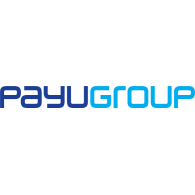
PayU, the global online payment service provider, today announces the launch of its PayU Hub platform. PayU Hub, which conforms to API design principles, aims to use technology to solve the cross-border commerce challenges currently facing merchants looking to grow and scale in high growth markets.
Through a single integration the PayU Hub provides merchants with access to 2.3 billion potential new customers in the major high growth markets across Asia, Central and Eastern Europe, Middle-East, India, Africa and Latin America. The platform’s state-of-the-art ‘API first’ design and globally distributed architecture enables reliable and scalable access to PayU’s regional and local payment processors.
PayU CCO Matthias Setzer said, “The cross-border market is expected to grow from $401 billion in 2016 to $994 billion in 2020. Nearly two-thirds of cross-border business will come from high growth markets like Asia and Latin America. These figures demonstrate the business opportunities available to ambitious merchants from around the globe.
“However, despite the attractiveness of these growing markets, merchants are being held back by cumbersome cross-border payment infrastructure and processes. PayU Hub’s combination of our own unique local knowledge and new technology will help tackle these current barriers and ensure that our customers have access to the best financial services.”
PayU Hub’s hyper-local direct connections to acquirers and alternative payment methods allows merchants to see increased card approval rates and reach entire markets through alternative payment methods. This also ensures that local consumers in high growth markets can pay for their purchases using their preferred payment method.
The next stage of the PayU Hub, which is in its induction stage, will be the completion of pilot tests of by select PayU customers. The results of these tests and their impact on cross border payments and processes are expected in the next couple of months.
Related News
- 05:00 am
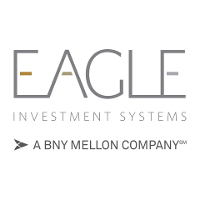
Eagle Investment Systems LLC, a BNY Mellon company, today announced that QIC Ltd is live using Eagle's enterprise data management and performance and attribution solutions, hosted on Eagle ACCESSSM, a secure private cloud.
cQIC, which had outsourced its data management and performance measurement functions to a global custodian, sought to supplement the outsourced services and reduce internal IT costs associated with maintaining its own proprietary technology infrastructure. QIC turned to Eagle to provide a data management and performance measurement solution to enable advanced performance reporting, returns and exposure analysis.
"We are quickly realising the benefits of using Eagle," said Mark McDonald, Executive Director at QIC. "In addition to improving the integrity of our data and instilling more flexibility in our performance reporting function, we have achieved greater efficiency and the ability to support the growth of our alternative assets business. We are also now able to automate a number of complex calculations that were previously handled manually using spreadsheets."
QIC's performance function supports all asset classes, including fixed income, equities, global strategies, real estate, private equity, infrastructure investments and derivatives. The new performance solution also includes a number of customised configurations to meet complex requirements and methodologies for reporting on international investments, as well as supporting multi-sector contribution and multi-level performance reporting.
"We are delighted that QIC has implemented Eagle Data Management and Performance," said John Legrand, Managing Director for Eagle in EMEA and APAC. "We are working with a growing number of asset owners in Australia that are looking to improve efficiency and assume greater control over their assets, as they grow and diversify their product ranges. We look forward to further developing our relationship with QIC as they continue to refine and optimise their operational model to achieve greater efficiencies."
Related News
- 08:00 am
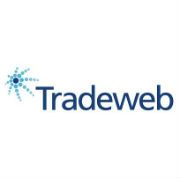
Tradeweb Markets, a leading global marketplace for electronic fixed income, derivatives and ETF trading, announced that following an extensive period of engagement, it is the first offshore trading platform to connect with China Foreign Exchange Trade System (CFETS), to become the main trading interface for offshore investors to access Bond Connect.
The People's Bank of China and the Hong Kong Monetary Authority (HKMA) on 16 May announced Bond Connect, which will enable investors in Mainland China and overseas to trade bonds in each other's markets through connection between the financial infrastructure institutions of Mainland China and Hong Kong in respect of trading, custody and settlement. Northbound Trading will commence first in the initial phase, i.e. overseas investors will be able to invest in the China Interbank Bond Market (CIBM). Tradeweb is the first trading platform to offer a gateway for this initiative, which looks to help further open China's domestic bond market, the third largest bond market in the world.
"We are pleased to be the first trading platform to link to Bond Connect, an offering leveraging the familiar practices already used by foreign investors through Tradeweb across other market places," said Lee Olesky, CEO of Tradeweb Markets. "We believe the liberalization of the Chinese bond market is a landmark event, and Tradeweb is excited to be acting as the first access link for this initiative. Given the strength of our investor network of over 2,000 clients globally, we are well positioned to help the evolution of this market."
"The Bond Connect program leverages the expertise HKEX has had as a global exchange leader and Tradeweb's experience as the global industry leader in driving flexible, electronic solutions for fixed income trading," HKEX Chief Executive Charles Li said. "The extension of the Connect family furthers the goal to connect China's financial market with the world. Tradeweb's deep fixed income experience and global client network are key to helping meet the Bond Connect objectives."
Eligible overseas institutional investors will be able to trade directly with Mainland Chinese liquidity providers in the CFETS market by utilizing Tradeweb's user interface to connect to the CFETS trading system. Bond Connect will allow Eligible Offshore investors to discover prices, submit orders and trade permissible onshore debt instruments. Via the connection established in Tradeweb's fully disclosed request for quote system, investors will be able to send requests to the market for all CIBM cash bonds, removing the need to execute though an agent bank.
"We are pleased that Tradeweb, as an international trading platform, will connect with CFETS under the Bond Connect project, building a bridge for the global investor community to participate in the China Interbank Bond Market," said Pei Chuanzhi, President of CFETS. "We hope this arrangement will create value to both markets."
Furthermore, investors executing Bond Connect trades through the Tradeweb interface will benefit from an improved settlement process, where they can use global custodians to settle thanks to the nominee holding arrangement provided by HKMA's Central Moneymarkets Unit (CMU). This crucial trading link will therefore offer an easier and more convenient way of accessing onshore liquidity providers, and allow for greater pre-trade price transparency.
Bond Connect Company Limited, a joint venture between CFETS and HKEX, will support and assist admission and registration for Northbound investors for the new scheme, offering a more efficient and easier process for offshore investors to connect and trade with related Hong Kong and Mainland financial infrastructure institutions.
Related News
- 07:00 am

AEON Financial Service and IBM Japan today announced they are building a blockchain-based financial platform for the Asian market. With the blockchain technology, the platform is expected to enable AEON Financial Service to provide enhanced financial services such as settlement and transactions for both consumers and enterprises in Japan and throughout Asia, including virtual currency payments between individuals and businesses, loyalty points allocation and redemption, and transaction data management.
AEON Financial Service, a group of the largest retail companies in Japan, provides a range of financial services including banking, credit and micro-finance to customers in Japan and 11 other countries across Asia. The company is working with IBM to develop a new payment network for consumers and enterprises in both Japan and the Asia region, using advanced technologies like blockchain to provide consumers with the tools they need to seek more prosperous lives.
"Based on settlements and transactions, AEON Financial Service is working to build a platform that will offer various financial services such as virtual currency payments and loyalty points exchange and redemption not only to customers in Japan but also throughout Asia," said Masaaki Mangetsu, Managing Director, Global Business Strategy, AEON Financial Service. "We foresee great opportunities in using blockchain to build this platform, and will aim to use it to improve our current financial services offerings, as well as offering new services to underserved customers in Asian countries."
"As an innovative technology, blockchain has the potential to revolutionize ways businesses work together with their ecosystem partners. The technology establishes accountability and transparency while streamlining business processes," said Yoshiki Minowa, Vice President, Partner - Cognitive Process Transformation, Global Business Services, IBM Japan. "We are delighted to work with AEON Financial Service to build up a new blockchain-based platform for innovations."
The trial will be conducted on Hyperledger Fabric, a blockchain framework and one of the Hyperledger projects hosted by The Linux Foundation. IBM is a Premier Member of Hyperledger, an open source collaborative effort created to advance cross-industry blockchain technologies. IBM Blockchain solutions enable companies to store and share transaction records on the blockchain, and can be governed by smart contracts" that define transaction rules on the ledger. The offering is underpinned by secure encryption technology that validates transactions from the infrastructure layer. This feature helps enable enterprises to form blockchain networks within a specific industry and organization and build sharable models as they work to build production networks.
In the trial, IBM Japan will provide technical support to AEON Financial Service for the technology implementation in the finance sector, as well as associated technology development services. The platform will draw upon AEON's technical expertise in networking and blockchain technology. The initial pilot will evaluate blockchain's effectiveness across these key areas to assess its ability to scale.
IBM Japan is dedicated to the goal of providing its clients with a wide range of secure and convenient financial services. AEON Financial Service expects to begin the trial of the platform in July as the first stage of the proposed plan to develop the platform.
Related News
- 02:00 am

Xpress Money, one of the world's most dependable money transfer brands, is set to strategically expand its business in Europe by partnering not just with traditional money transfer players but with banks, retail chains, telecos, fintech companies, startups etc. that are looking to collaborate to tap newer audiences and deliver additional value to existing consumers.
The team is geared to meet present and potential partners at Money 2020 Europe to be held in Copenhagen from June 26th - 28th, 2017. Xpress Money has consolidated its expertise under its 'Plug & Play' business solutions to offer payment solutions to any company looking to foray into the ever-growing remittance industry.
Speaking about the expansion plans, Sudhesh Giriyan, COO, Xpress Money, said, " We want to create a remittance ecosystem where both the customer as well as the service provider are empowered and get maximum value for their money. Customers are not just looking for convenient money transfer services, but for brands they can trust their earnings with. 'Plug & Play' seamlessly encompasses Xpress Money's legacy and expertise - the ideal combination that customers and partners look for. The platform provides the most comprehensive solutions for online and offline remittances and helps companies manage transactions and compliance - the technology is for everyone, from startups to global enterprises. Our proprietary API is also perfectly compatible with any system, eliminating the need for any modification by the partner company".
Xpress Money has partnered with NICE Actimize, the global leader in financial crime risk management to ensure the safety of its customers' money at all times. 'Plug & Play' assures an effortless integration into the world of remittance - an industry that offers endless possibilities.
Related News
- 08:00 am

Modo, the payments technology company leading the connection of legacy financial services infrastructure to new digital experiences, today announced their participation in the Mastercard Start Path Global 2017 Summer Class. Modo's COIN® is already being used by global payment and commerce giants like Bank of America Merrill Lynch, Verifone, FIS and Klarna. During its participation in the Start Path program, the Dallas-based startup hopes to receive the operational support needed to continue expanding the applications powered by their technology.
"As self-proclaimed #paymentsgeeks, joining Mastercard Start Path will connect us to the resources we need to reimagine financial technology at a greater pace," said Bruce Parker, CEO of Modo. "We look forward to joining the cool kids in our industry to refine the vision for our COIN technology and bring our business to new heights."
"Collaborating with Modo allows Mastercard to explore new ways for consumers, merchants and financial institutions to make and receive payments," said Amy Neal, Vice President, Mastercard Start Path Global. "By connecting Modo to our network of experts and partners, we can build the technologies of tomorrow more quickly."
Modo recently participated in the Start Path Immersion Week in London where they developed a tailored plan that will deliver tangible value and help Modo to scale. For the next six months, Modo will receive access to Mastercard expertise, resources, and solutions.
Modo joins Start Path in the Startup City at Money20/20 Europe. Modo CEO, Bruce Parker, will also be speaking with Ather Williams, Head of Global Transaction Services, Bank of America Merrill Lynch, about Modo's partnership with the bank for global digital disbursements at the conference. Their session is in Track Room 5 on Tuesday, June 27th at 3:50PM CEST.
Related News
- 08:00 am

Itiviti, a world-leading technology provider for the capital markets industry, and the Canadian Securities Exchange (CSE), the modern and efficient alternative for companies looking to access the Canadian public capital markets, have partnered to deliver a state-of-the-art automated testing solution to enable continuous integration testing and defect reporting in the CSE's multi-protocol trading environment.
To deliver the solution, CSE deployed VeriFIX by Itiviti, the industry standard in automated testing, with multiple FIX protocol versions as well as proprietary binary protocols in order to implement full regression testing of order entry, market data feeds, and regulatory requirements for the CSE Trading System. This full regression testing suite facilitates validation of complete trading workflows across all protocols and interfaces.
"Itiviti has enabled CSE to regression test our platform and receive automation quality benefits both of which has added operational efficiencies to our release cycles," said David Timpany, Vice President, Technology & Operations for CSE. "Our regression testing time frame has been reduced from multiple people for four weeks to an overnight automated test run with defect report generation. With next day feedback to our development team, we have dramatically decreased the defect turnaround timeframe. These improvements will help us to continue offering our clients a competitive advantage in the marketplace."
Multi-protocol technologies are a top priority at Itiviti. Itiviti's solutions support both industry standard and proprietary protocols and are available for firms looking to redesign or scale-up their trading technology for future client demand.
"We are pleased to continue to partner with CSE to accelerate deployment of CSE's Trading System and help achieve cost and system efficiencies," said Jesper Alfredsson, President Americas, Itiviti. "Our work with CSE is another example of how Itiviti can help achieve test automation for FIX and proprietary protocols."
Firms that invest in multi-protocol technologies will be the leaders in offering high quality, reliable market access for a broader range of market participants.









